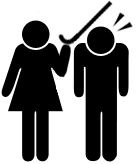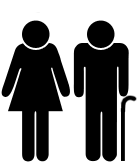







Fail Blog.
Emily owns this blog which is supposedly Maxinne's.
This blog is also supposedly for schoolwork. Well you know what. That is a load of sheep poo because, yeah, no.
Sorry Sir. (:
Tuesday, February 2, 2010
Class work.
:] worked on google wave today...so refer to that...
Labels: class work, notes
12:25 PM
Monday, February 1, 2010
Data Dictionary.
Meta data: Data about data. Provides information about the different things in the database.
Example of what it can tell someone:
Example of what it can tell someone:
- Different types of data types [numeric data etc.]
- Field names
Data dictionaries refer to one table, therefore if there is four tables there are four data dictionaries.
---
Schema: The schema (pronounced skee-ma) of a database system is its structure described in a formal language supported by the database management system (DBMS). In a relational database, the schema defines the tables, the fields in each table, and the relationships between fields and tables.
Example of a schema:
Example of a schema:
Legend:
Key: Primary field, only occurs once per table
Infinity: Can occur multiple times in a table
Read the textbook to understand more -.-;
---
HYPERMEDIA - internet based database
- Site map:
---
HYPERMEDIA - internet based database
- Site map:

---
Slash meanings 0.o; [who would've thought they had differnt meanings...]
'\' - file system
'\\' - file server
'/' - web base instructions

Labels: class work, notes
9:25 AM
Notes.
Different types of databases - manual, flat file, relational & hypermedia
Page 44 in textbook!!!
Manual - paper databases, best when databases are used for personal use
- Most large scale businesses wouldn't use this method, due to diffculty to update information
Flat file - one table databases; useful to mostly small businesses (single asian stores?)
- Use in a business for personal records; relative small list [can be bigger than manual]. More possibility for redundant data, the more company personel the more redundant information arises.
Relational - multi-table databases; useful to large businesses (coles, woolsworths etc.)
- Best for large scale business: can store large amounts of data in a more organised manner
- Doesn't always have online access, sometimes can only be accessed through the office
Hypermedia - internet websites; modern version of paper based databases
- Easy access to products - more searchable
- Have more information compared to manual databases
- Easier to update; rather than having to reprint catalogues
- Least private compared to the other databases - expanding the audience to worldwide. Easier to access information, stealing data is easier to be done. Information that should remain private, needs to be secured in some manner.
- Security issues:
- Passwords are highly needed - access to information is restricted.
- Encryption may be used to further ensure security of data transferal.
- Level of access may be used; boss would have access to all information regarding the work, normal employee may only have access to their own personal records/whatever data is needed for the job.
Read pages 46-49
---
Encryption - the activity of converting data or information into code.
Labels: class work, notes
9:07 AM
may the force be with you
link link link link link link
after tomorrow but before today
February 2009 March 2009 April 2009 May 2009 June 2009 July 2009 August 2009 September 2009 January 2010 February 2010 May 2010 June 2010 July 2010
you owe me a cookie
Designer
DancingSheep
Resources
x
swear like a sailor
tagboard yeah.
